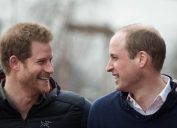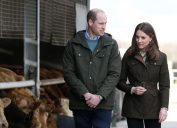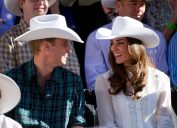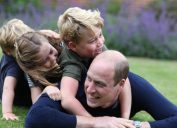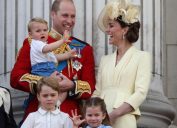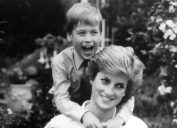Why Prince William's COVID Diagnosis Could Spell Disaster For the Royals
What his decision to keep silent about his illness could mean for the future of the monarchy.
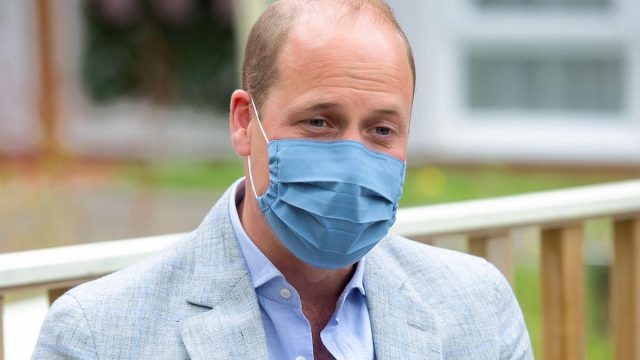
The news that Prince William tested positive for COVID-19 in April but chose not to inform the British people has shocked the public and even evoked widespread criticism from veteran royal commentators. According to some experts, William's secretive move could have a disastrous long-term effect on the royal family. At a time when there has been growing public discussion on the relevancy of the monarchy when Queen Elizabeth no longer reigns, William's decision to stay silent about his illness has called into question the very future of the monarchy.
The Sun, which broke the story that William was left "struggling to breathe" after contracting COVID-19 nearly seven months ago and stayed silent about his illness, reported that the prince explained his decision to an attendee at an event. "There were important things going on and I didn't want to worry anyone," he reportedly said. At the same time, Prime Minister Boris Johnson was in intensive care in a London hospital with the virus and Prince Charles, who had announced he had the virus in March, was in quarantine. The Daily Mail's Rebecca English tweeted that Kensington Palace has confirmed William had the virus but Kate Middleton and their children—Prince George, Princess Charlotte, and Prince Louis—did not fall ill. The timeline of the prince's diagnosis and treatment remain unknown.
Per the tabloid, William was treated by palace doctors while isolating with Kate and their children at his family's home, Anmer Hall in Norfolk. The Sun quoted a source as saying, "Everyone around him was pretty panicked," but the prince "was determined it should be business as usual." During that time, William somehow carried out 14 official engagements remotely, often with Kate by his side.
Richard Palmer, royal reporter for the Daily Express, issued this scathing commentary on Twitter: "If the future King contracts a potentially fatal virus that the entire world is worried about during a lockdown and he and those around him cover it up, that raises serious questions about whether we can trust anything he or his advisers say. The U.K. expects honesty from public figures, particularly during a pandemic. This may be a cover-up that will haunt William and those advising him."
Royal commentator Robert Jobson railed against William's decision to keep mum on his diagnosis with a tweet that read: "The fact is the palace lied about it. KP were are [sic] asked several times by several media outlets whether Prince William had contracted the virus and were told categorically 'no'. The decision was taken to LIE, thus creating a problem of trust going forward. Poor judgement."
Jobson also wrote: "If the palace is prepared to LIE about an issue as serious as Prince William, second in line to the throne, contracting COVID-19 what else have they LIED about when questioned by the press and why should the media believe any denials going forward? This raises serious issues."
ITV's Chris Ship, who hosts the Royal Rota podcast, concurred with Jobson on Twitter, writing: "Whilst William & his aides might have taken their decision in good faith, questions might be raised about the wisdom of hiding such significant news from the public. Prince William is second in line to the throne."
Royal biographer Penny Junor told The Mirror William's decision not to make his diagnosis public goes against royal precedent. She compared William's illness to an event in 1991, when the then nine-year-old prince was accidentally hit on the head with a golf club at school and suffered a depressed fracture on his forehead, which was front page news. "I would have thought William having coronavirus was also in the spirit of that precedent," she noted. "When I heard it, I thought, 'Surely it can't be true because we would have been told any important news," she said. "It's very odd, because we do normally know things that are regarded as in the public interest if anything happens to one of our leaders."
Junor mused that William's silence is a sign that the prince could be setting a new benchmark for the royals in terms of what would be considered in the public interest.
"William is fiercely private," a royal insider told Best Life. "He hates the press as much as Harry does but has made his peace with what's required, but is not of the mind that he owes them any more than that. This is not surprising at all but unfortunately, with the royal family dealing with the fallout from a number of issues, the timing on this is not ideal."
And therein lies the problem. While it is not entirely unusual for the palace to not make any announcement until after a successful surgery or recovery (Queen Elizabeth underwent planned cataract surgery in 2018 and the palace didn't share the news until a month later), the Palace's penchant for secrecy in this instance is ill-timed. For nearly the past two years, the royal family has been embroiled in one scandal or crisis after another from Prince Andrew's disastrous BBC interview where he attempted—and failed—to explain away his friendship with Jeffrey Epstein to Megxit and the on-going fallout from Prince Harry and Meghan Markle's perceived political activism in the states. The Palace has not been exactly forthcoming on either of those controversial matters. All of this adds up to another annus horribilis for the royals.
William and Kate have been the monarchy's "secret weapons" in their energetic PR campaign this year, emphasizing the royals' empathy and desire to understand the challenges faced by the British people today. If the prince's image takes a big hit in terms of public perception, there could be disastrous ramifications.
"The British people see hope for a future of the monarchy in William and Catherine," an insider told Best Life. "There has been a great deal of enthusiasm for them, especially this year. If the tide were to turn, it could be the beginning of the end of the monarchy."
Of course, William has already left his mark on the monarchy over the years. Read on for more on how he's changed the royal family forever, and for more news on the Duke of Cambridge, check out Diana Would Have Healed William and Harry's Rift, Says Royal Biographer.
Diane Clehane is a New York-based journalist and author of Imagining Diana and Diana: The Secrets of Her Style.
Read the original article on Best Life.
1
He married a "commoner."
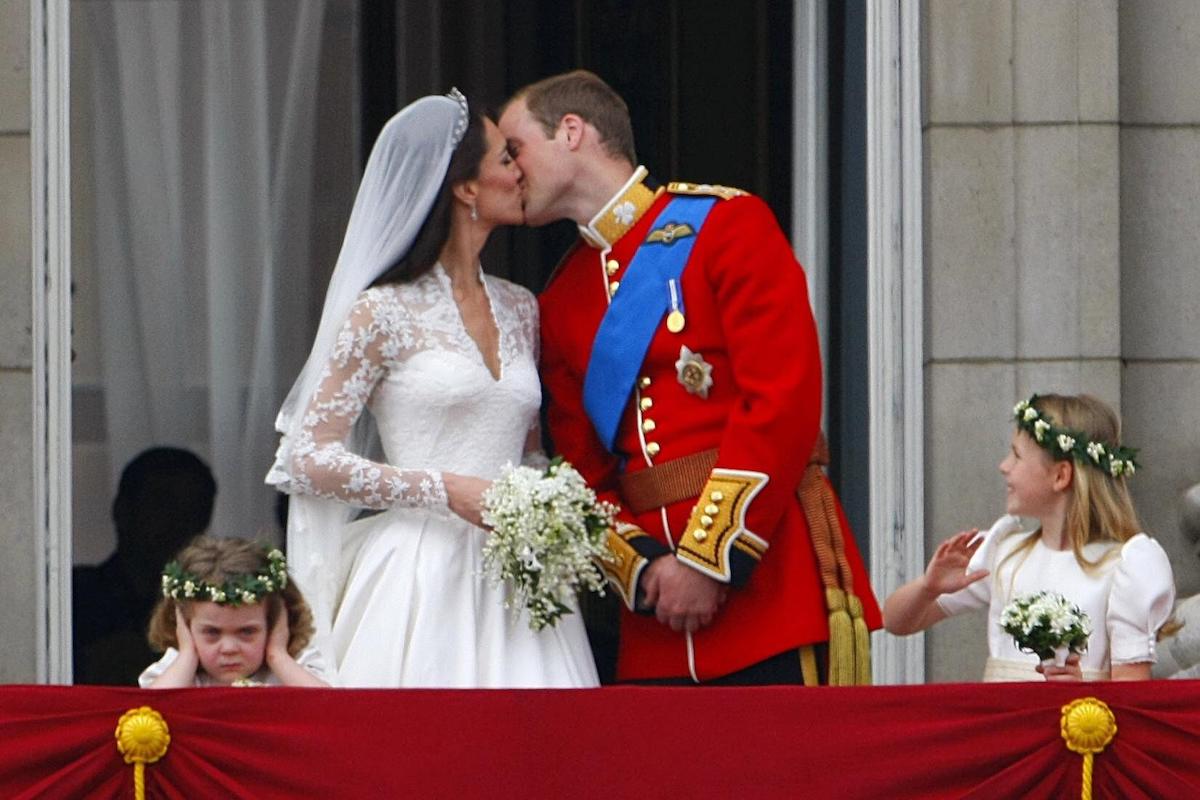
When Prince William wed Kate Middleton on April 29, 2011, she was the first commoner to marry an heir to the British throne in over 350 years. Having witnessed firsthand the pain of his parents' Prince Charles and Princess Diana all-but-arranged marriage, he was determined to marry for love and forever altered the pattern of a future king marrying within the aristocracy. And for more on this beloved couple, check out William and Kate's Most Adorable Couples Moments Through the Years.
2
He wanted a "real job" and family time before becoming a full-time royal.
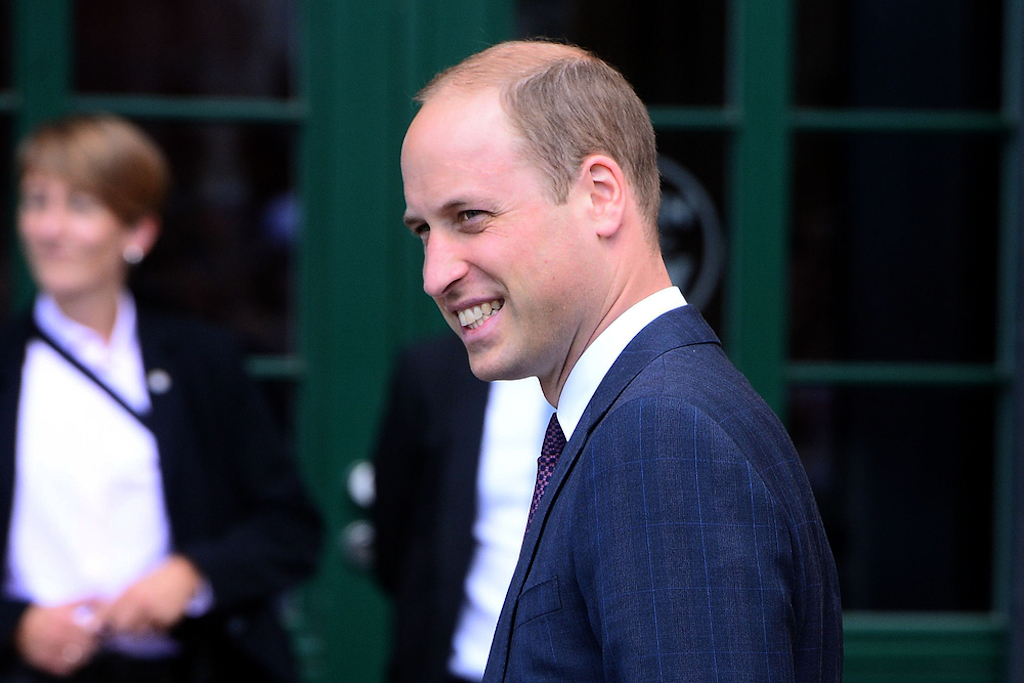
Before becoming a full-time member of "The Firm," William wanted a "civilian" job and worked as a helicopter pilot for an air ambulance service. The prince flew emergency rescue missions for East Anglian Air Ambulance for two years while living with Kate in Amner Hall. He hung up his flight suit in 2017, the same year his oldest son, Prince George, started nursery school.
Before leaving his job, he issued a touching statement, thanking his colleagues and the community for accepting and treating him as a "fellow professional—a pilot with a job to do." The prince wrote: "As part of the team, I have been invited into people's homes to share moments of extreme emotion, from relief that we have given someone a fighting chance, to profound grief. These experiences have instilled in me a profound respect for the men and women who serve in our emergency services, which I hope to continue to champion even as I leave the profession." And for more on how William honors those who matter most to him, check out The Sweet Ways Prince William Has Taught His Children About Princess Diana.
3
His daughter's birth was historic.
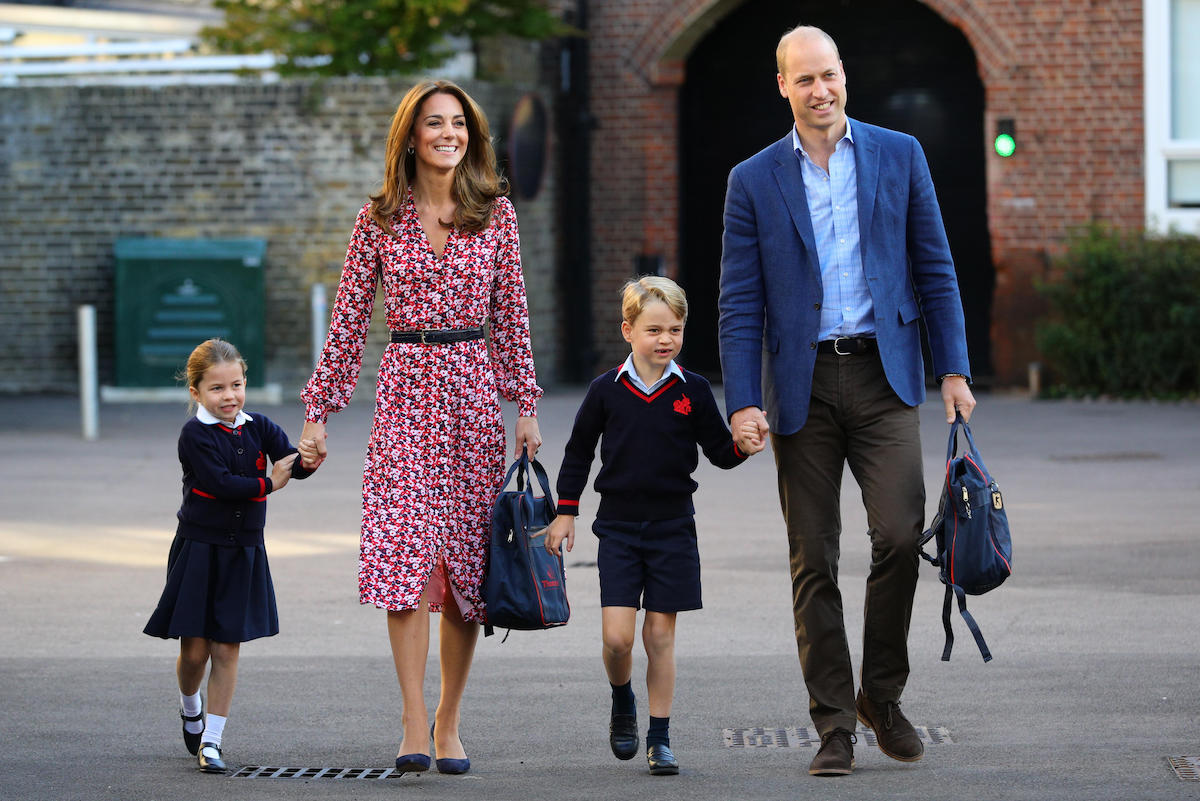
When Princess Charlotte was born in 2013, she was the first princess who won't be overtaken in the line of succession by a younger brother. Prior to her birth, Parliament issued the Succession to the Crown Act of 2013, which changed the sexist tradition of men overriding women to stipulate that the sex of a royal born after October 28, 2011 does not give that person, or their descendants, precedence over anyone else in determining the next monarch. And for more on this tiny royal, check out Princess Charlotte's Life in Photos: See Her Most Adorable Moments.
4
His choice to back away from the Megxit negotiations sealed Harry's fate.
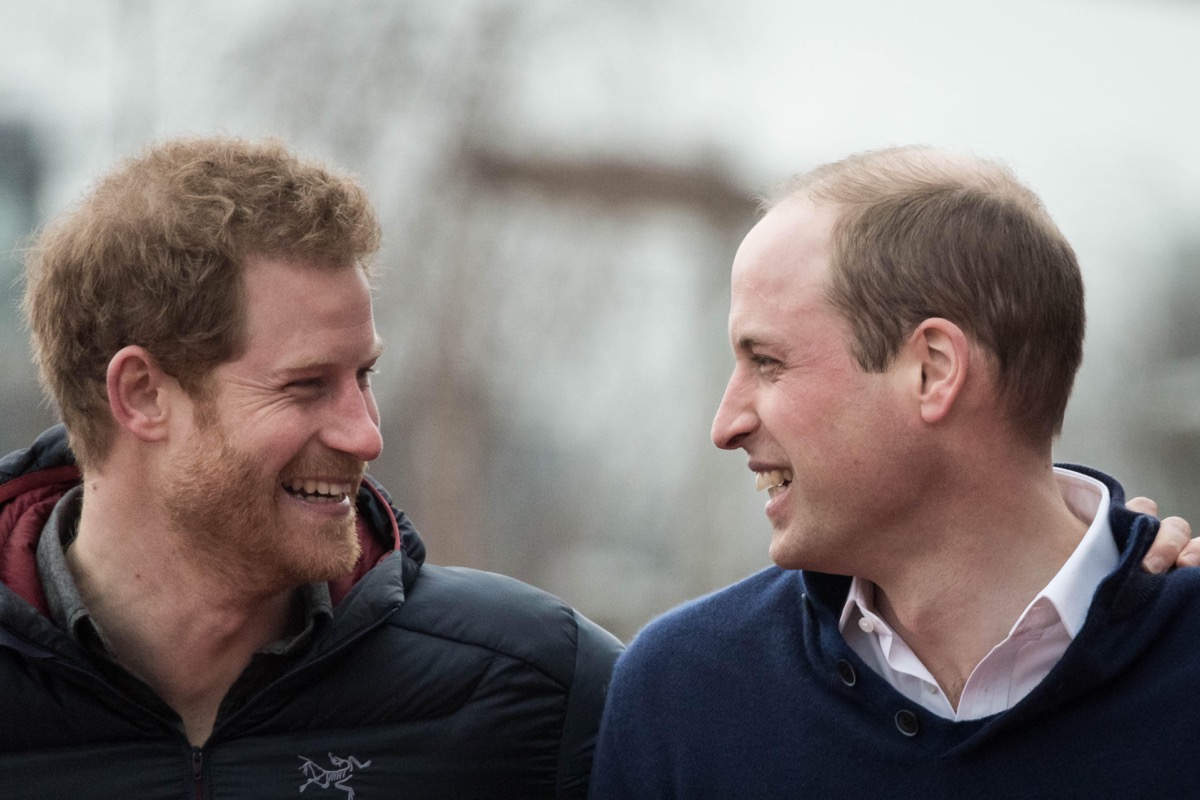
Royal expert Robert Lacey writes in his new book, Battle of Brothers: William and Harry–The Inside Story of a Family in Tumult, that William chose to not be personally involved in the contentious negotiations that hammered out the final agreement allowing Prince Harry and Meghan Markle to step away from royal life. Had he not, according to Lacey, the terms of their exit may have been different.
Lacey contends that William wanted no part of the tense Megxit negotiations, writing, "He would much rather leave all the haggling to the staff." The prince maintained his distance (declining to lunch with Harry and the Queen before their first meeting) and was represented by his private secretary, Simon Case, who hashed things out with Palace handlers who decided to strip Harry of his military affiliations and prohibit the use of "Sussex Royal" for any new venture.
"The die was clearly cast in January 2020 when William personally stepped back [from the negotiations] and left his brother to face the officials alone," Lacey writes. "If there was one person who could have intervened to correct the settlement imposed by the elderly monarch and the over-strict courtier at the start of 2020, it was surely William. That was the ultimate defeat in the battle of the brothers." And for more on this, check out William "Does Not Foresee" Reconciling With Harry, Says Royal Biographer.

